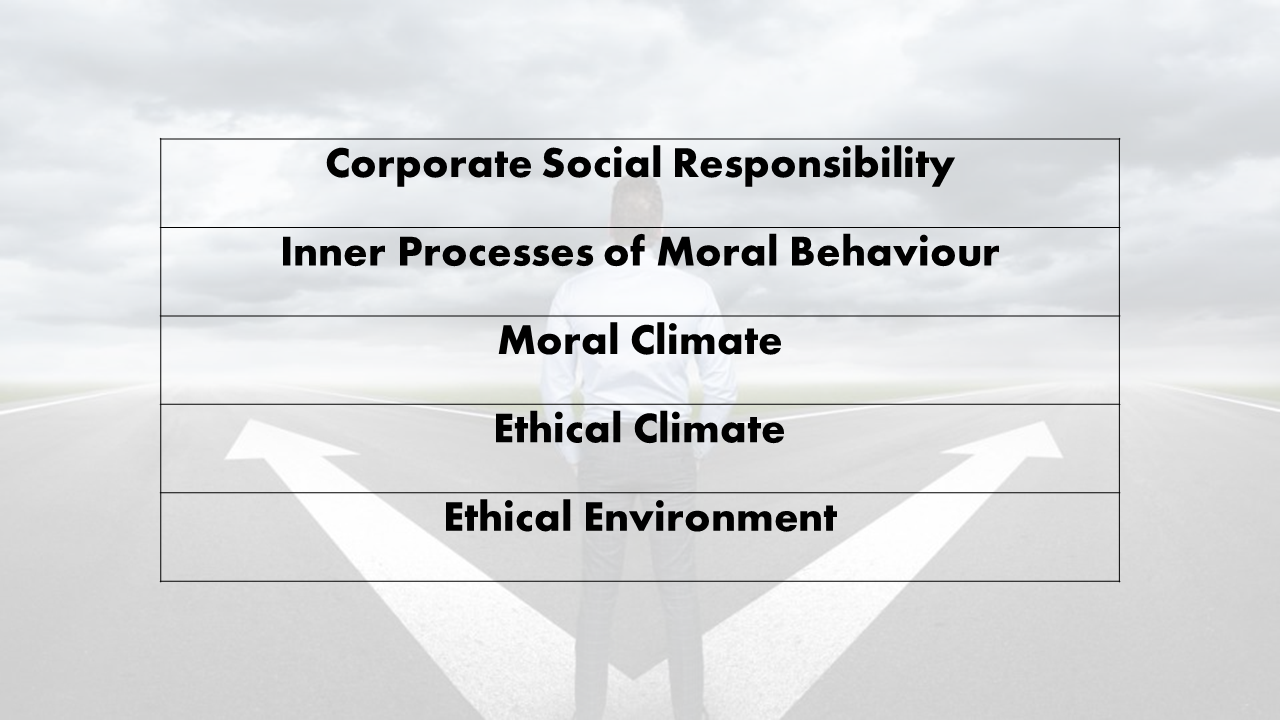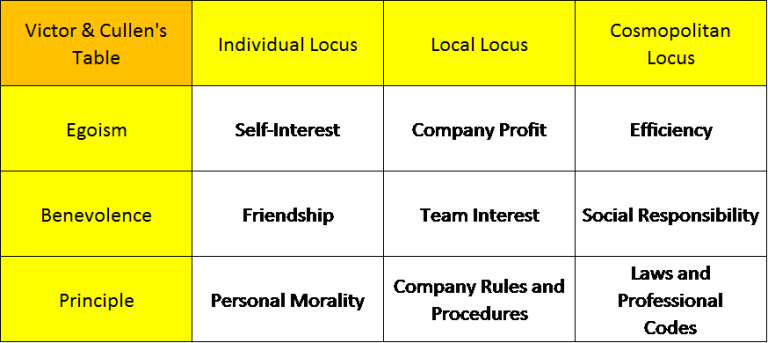
Click here to view a video about ethical leadership.

Ethical Environment: This encompasses ethical leadership, role modelling, ethical norms, reward systems that support ethical conduct and identifies the degree to which unethical behaviour is punished in organisations.
Ethical Climate: Nine ethical climates have been identified:
Egoist-individual - self-interest is the expected norm
Egoistic-local - the company’s interest guides the decisions that are made
Egoist-cosmopolitan – efficiency is the expected norm
Benevolent-individual – the welfare of individuals inside the organization guide decisions
Benevolent-local – the welfare of groups inside the organization guide decisions
Benevolent-cosmopolitan – the welfare of individuals and groups outside the organization guide decisions
Principled-individual – personal morals guide decisions
Principled-local – organizational rules and regulations are the norm
Principled-cosmopolitan – external laws and codes guide ethical decisions

Moral Climate can be defined as the way in which employees perceptions of organisational norms forms their intentions, consideration of consequences, observation of contracts, and implementation of procedures.
Inner processes of Moral Behaviour: Early theories on morality argue that moral behaviour is determined by behaviour, feelings and thoughts. The thoughts that usually go through the mind when deciding on moral action could look as follows:
How do my actions affect the welfare of others?
- Formulate moral course of action, including ideal situation
- Select best option from above
- Execute and implement
Corporate social responsibility: Reasons for organisations to become more socially responsible are many, but can be summarised in four categories: economical, legal, ethical, and philanthropic. The ethical reason for corporate social responsibility is that society expects from businesses to fulfil their ethical responsibilities by avoiding questionable practices and to adhere to the spirit of the law, not only the letter of the law.
The Johannesburg Stock Exchange (JSE), has developed a Social Responsibility Investment Index (SRI). Companies rated tops on this index of 94 points, included Anglo American, Nedcor, Standard Bank, FirstRand, ABSA, Woolworths, MTN, Nampak, and Illovo Sugar.
Click on the link/s below to open the resources.
Interesting websites to visit to view South African examples of Social Responsible companies are: